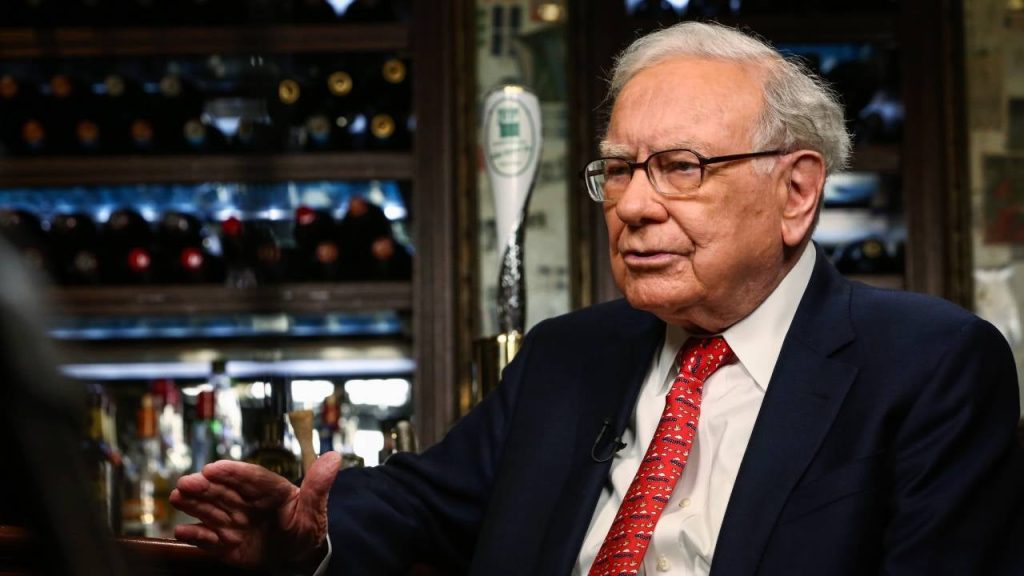Warren Buffett is one of the greatest investors ever, so it’s no wonder many investors are looking to build their portfolios based on his philosophy. Berkshire Hathaway, the company Buffett has led since 1965, has returned about 20 percent annually over the past six decades, compared to a roughly 10 percent return for the S&P 500.
Buffett has written and commented on his investment philosophy frequently over the years, emphasizing the importance of a business’s competitive advantage, return on capital and intrinsic value.
For most investors, Buffett recommends a low-cost S&P 500 index fund that can be purchased over time, but there are other funds that apply different aspects of Buffett’s philosophy. Here are six exchange-traded funds (ETFs) that follow parts of Buffett’s investment strategies. Buffett has not directly endorsed any of the funds mentioned.
6 ETFs that emulate Warren Buffett’s investment philosophy
Data as of June 17, 2025.
1. Vanguard S&P 500 ETF (VOO)
This Vanguard S&P 500 ETF holds roughly 500 of the largest U.S. stocks and is one of the simplest ways for investors to participate in the growth of American business. Buffett has said that his widow will inherit a trust that will hold 90 percent of its assets in an S&P 500 index fund, which he expects to achieve satisfactory results over time.
- Expense ratio: 0.03 percent
- 5-year return (annualized): 15.7 percent
2. VanEck Morningstar Wide Moat ETF (MOAT)
Buffett has often talked about the importance of investing in companies that have competitive advantages, or wide “economic moats.” This ETF aims to match the performance of an index of attractively priced companies with sustainable competitive advantages, according to Morningstar’s equity research team.
- Expense ratio: 0.47 percent
- 5-year return (annualized): 12.6 percent
3. iShares MSCI USA Quality Factor ETF (QUAL)
One of the key metrics that Buffett focuses on when selecting investments is a company’s return on equity. He looks for high returns that are earned with low amounts of leverage, or debt. This iShares ETF aims to track an index of profitable U.S. stocks that have low leverage and consistent earnings over time.
- Expense ratio: 0.15 percent
- 5-year return (annualized): 14.4 percent
4. iShares Russell 1000 Value ETF (IWD)
If there’s one style of investing most closely associated with Buffett, it’s value investing. He got his start purchasing cheap “cigar butt” investments before eventually looking for high-quality companies. The iShares Russell 1000 Value ETF buys large- and mid-cap U.S. stocks that are thought to be undervalued by the market.
- Expense ratio: 0.19 percent
- 5-year return (annualized): 12.6 percent
5. Invesco S&P 500 Quality ETF (SPHQ)
The Invesco S&P 500 Quality ETF is another fund that focuses on high-quality companies. The ETF is based on an index comprised of S&P 500 stocks with the highest quality score, which is based on a company’s return on equity, earnings quality and leverage.
- Expense ratio: 0.15 percent
- 5-year return (annualized): 16.2 percent
6. VistaShares Target 15™ Berkshire Select Income ETF (OMAH)
This ETF is the most unusual on this list and targets Berkshire’s investments directly. The fund generally holds the 20 largest positions in Berkshire’s equity portfolio, as well as Berkshire itself, and writes call options to generate monthly income. The fund aims for an annual yield of 15 percent. The ETF was launched in 2025 and comes with an expense ratio of nearly 1 percent.
- Expense ratio: 0.95 percent
- 5-year return (annualized): N/A
Bottom line
Investing like Warren Buffett is an understandable goal and there are several low-cost ETFs that allow you to invest based on his overall philosophy. The most direct way to invest with Buffett is to buy Berkshire Hathaway stock directly, which allows you to benefit from Buffett’s investment decisions (as well as his successor’s). You also get the added bonus of not having to pay an expense ratio.
Editorial Disclaimer: All investors are advised to conduct their own independent research into investment strategies before making an investment decision. In addition, investors are advised that past investment product performance is no guarantee of future price appreciation.
Why we ask for feedback
Your feedback helps us improve our content and services. It takes less than a minute to
complete.
Your responses are anonymous and will only be used for improving our website.
Help us improve our content
Thank you for your
feedback!
Your input helps us improve our
content and services.
Read the full article here
